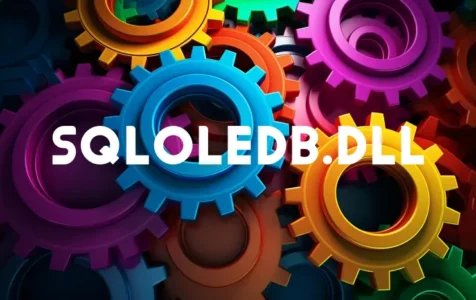The sqloledb.dll is an essential dynamic-link library file associated with the Microsoft OLE DB Provider for SQL Server. OLE DB, which stands for Object Linking and Embedding Database, is a set of COM-based interfaces that expose data from various sources, such as databases, spreadsheets, or text files. The sqloledb.dll file is a crucial component that allows applications to access data stored in instances of Microsoft SQL Server.
Is sqloledb.dll Safe to Run?
Yes, sqloledb.dll is safe to run as it is a legitimate file provided by Microsoft Corporation. However, as with any executable file, it’s crucial to ensure that the file is not a disguise for malware. Users should ensure they are using the accurate version of this file and should not download it from untrusted websites.
Could sqloledb.dll Be a Virus or Malware?
While sqloledb.dll itself is not a virus, it is possible for malicious programs to disguise themselves with the same or a similar name. To stay safe, users should perform regular system scans with reputable antivirus software and be cautious when handling files received from untrusted sources.
Common Issues Associated With sqloledb.dll
Common issues related to sqloledb.dll include:
Expert Tip: For smoother PC performance, consider using a PC optimization tool. It handles junk files, incorrect settings, and harmful apps. Make sure it's right for your system, and always check the EULA and Privacy Policy.
Special offer. About Outbyte, uninstall instructions, EULA, Privacy Policy.
– Errors during application execution, especially concerning data retrieval or connection to SQL Server.
– The file being deleted, misplaced, or corrupted, potentially by malicious software.
– Some applications, including games, may require the DLL file to be within the specific application folder to function correctly.
The legacy version of Microsoft OLE DB Provider for SQL Server, identified by this DLL, is no longer maintained, so it’s not recommended for use in new development.
How Can These Issues Be Fixed?
Solving problems related to sqloledb.dll typically involves ensuring that the file is present in the correct location and is not corrupted. Here’s how you can address common issues:
– Check if sqloledb.dll is present in the System32 directory for 32-bit systems or SysWOW64 for 64-bit systems.
– Repair or reinstall any applications that report the sqloledb.dll error, as the file may need to be properly re-registered.
– Use System File Checker (SFC) to scan for and restore corrupted system files. Open the Command Prompt as an administrator and type `sfc /scannow`.
– If your existing software uses sqloledb.dll and is experiencing issues with newer versions of Windows Server, consider updating the connection strings or application code to use the newer MSOLEDBSQL driver, which supports TLS 1.2.
– As a security measure, before attempting to replace sqloledb.dll with a newer version, you should always back up the existing file.
In case of database connectivity and driver issues, users can seek help in community forums, such as the Devart Forums, where experts and peers can provide assistance with problems like incorrect search paths for the DLL.
User Experiences and Community Discussions
Users, through community discussions, have shared their challenges and solutions regarding sqloledb.dll. For example, problems with application compatibility on newer versions of Windows Server have been raised due to differences in support for certain protocols such as TLS 1.2. Moreover, users have reported errors about finding and loading the correct DLL file.
For instance, a discussion on the Devart Forums revolves around the search path for sqloledb.dll being incorrect, which results in connectivity problems with SQL Server. These community forums can be a valuable resource for troubleshooting and finding user-driven solutions.
For additional details or to participate in such discussions, visiting the Devart Forums or other database-related forums may prove helpful.
Remember to consult trusted sources for issues associated with system files like sqloledb.dll, and always maintain good security practices to prevent potential harmful effects on your system.
